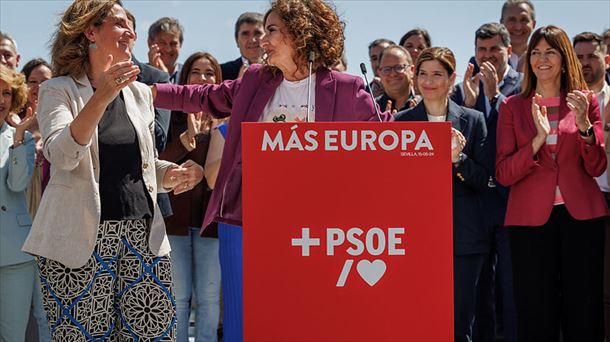The fastest and most feasible alternative now would be to pass in Congress an organic law for the delegation of powers that protects the transfer, but another feasible alternative would be to implement a reform of the Lorafna.
The transfer of traffic powers from the Guardia Civil to Navarre, overturned by the Supreme Courtconsiders that this body should cease to perform these functions and that the Foral Community should take charge of sanctions, management of driving schools, road safety education or traffic statistics.
After taking note of the Supreme Court resolution, the Government of Navarre has announced that “it will formulate the necessary mechanism to advance the unanimous commitment to promote self-government” with the assumption of this authority, which leaves open two main options to proceed from here on out.
In effect, the Supreme Court opens the door for Navarre to receive the transfer through other means. The ruling literally reads: “Consequently, a royal transfer decree cannot be used to grant a jurisdiction that is not recognized to Navarre in Lorafna nor protected by historical law. Article 150.2 of the Constitution”.
Pass an organic law in Congress
The fastest and most feasible alternative now, once the decree has been developed and its contents agreed with the State, would therefore be to adopt in Congress an organic law of delegation of powers that protects the transfer.
It is the alternative indicated by the Supreme Court itself, which states in its ruling that ‘the State may, through organic legislation, transfer or delegate to the autonomous communities powers corresponding to issues of state ownership which by their nature are susceptible to transfer or delegation. “.
Reform the Lorafna
The other viable alternative, given the infeasibility of constitutional reform, is to implement a reform of the Lorafna, the Jurisdictional Improvement Act.
Currently, the parliament of Navarre has a presentation open to study possible changes to the law on self-government, but work has not yet started. The problem is that there is currently no majority that supports deep changes (neither PSN nor UPN are willing to do so) and the debate could continue for several months.
In any case, the initiative for the reform, apart from any proposals that the Navarrese parliament might make, lies with the governments of Navarre and Spain. The process would also not be short, but could be accelerated if there is political will and the changes are limited to traffic competition.
Source: EITB
I am Ida Scott, a journalist and content author with a passion for uncovering the truth. I have been writing professionally for Today Times Live since 2020 and specialize in political news. My career began when I was just 17; I had already developed a knack for research and an eye for detail which made me stand out from my peers.


